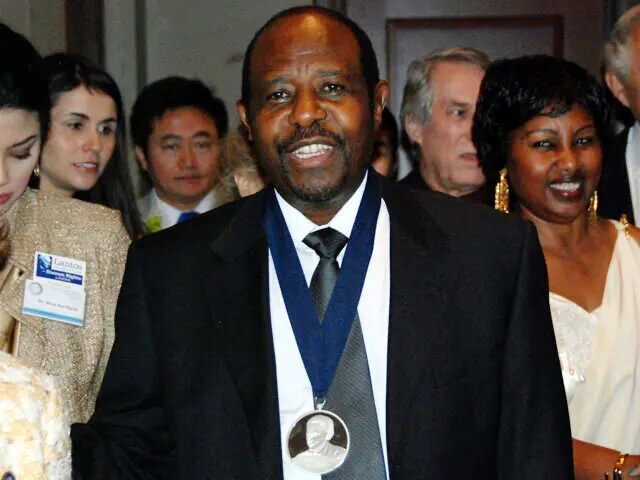The prisoner’s case was met with uproar among the international community and rights organisations.
Qatar has helped secure the release of Paul Rusesabagina, widely known as the “Hotel Rwanda hero,” from Rwandan prison after two and a half years in captivity, the Gulf state’s foreign ministry spokesperson confirmed.
In a statement, Qatar’s Foreign Ministry spokesperson Dr. Majed Al-Ansari confirmed that Rusesabagina’s sentence, who was imprisoned in 2020, will be commuted and to be released on Saturday “in accordance with a presidential decree.”
“The procedure for his transfer to the State of Qatar is under way; and he will then head to the United States of America. This issue was discussed during meetings that brought together Qatari and Rwandan officials at the highest levels in the context of bridging views,” Dr. Al-Ansari said.
Yolande Makolo, spokeswoman for the Rwandan government, told the New York Times (NYT) that the release comes following months of talks between Qatar, the Rwandan government, the White House and Rusesabagina’s family.
Rusesabagina was a vocal critic of Rwandan President Paul Kagame and came to be known as a hero during the 1994 genocide.
Kagame was in Doha last week, where he met with Qatar’s Amir Sheikh Tamim bin Hamad Al Thani, though statements released at the time made no mention of Rusesabagina release.
An official privy to the matter told the NYT that talks had started at the end of 2022 and the breakthrough only came after the meeting between Sheikh Tamim and Kagame.
“Qatar’s facilitation role reflects the mutual trust and strong relations between the State of Qatar and partners in Rwanda and the United States,” Dr. Al-Ansari said, noting Doha’s role as “a neutral mediator” in numerous files.
The Qatari foreign ministry official added that the Gulf state is also “a reliable international partner in resolving disputes through peaceful and diplomatic means and bringing the views of the various parties closer together.”
“Qatar appreciates the cooperation of the Government of the Republic of Rwanda, reflected in its decision of Mr. Paul Rusesabagina’s early release,” Dr. Al-Ansari said.
The Gulf state has long served as a heavyweight mediator which has helped secure the release of numerous prisoners over the past years.
‘A flawed trial’
In 2021, Rusesabagina alongside 20 others, was convicted on eight charges including being a member of a terrorist group and was sentenced to 25 years in prison.
Makolo said on Friday that Rusesabagina and 19 others will be released.
The Rwandan official noted that despite the sentence being commuted, it does not “extinguish the underlying conviction.”
“No one should be under any illusion about what this means, as there is consensus that serious crimes were committed, for which they were convicted,” she told NYT in a text message.
Rusesabagina was the centre of 2004 Oscar-nominated movie “Hotel Rwanda.” His case was met with uproar among the international community and rights organisations.
The former detainee had moved to the US before being tricked into travelling for a speaking gig in Burundi via a private jet that landed in Rwanda.
He was then kidnapped and tortured by Kigali’s government, according to testimonies and rights reports.
Rusesabagina is a Belgian citizen and a permanent US resident.
Human Rights Watch (HRW) had slammed the conviction at the time and said it came following “a flawed trial that is emblematic of the government’s overreach and manipulation of the justice system.”
During the Rwandan genocide, Rusesabagina served as the manager of Hotel Mille Collines in Kigali and sheltered more than 1,200 people. His heroism was met with global praise.
Former US President George Bush had awarded Rusesabagina the Presidential Medal of Freedom in 2005.







